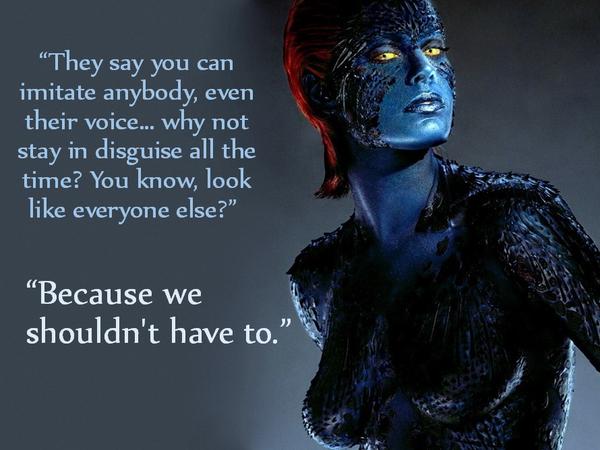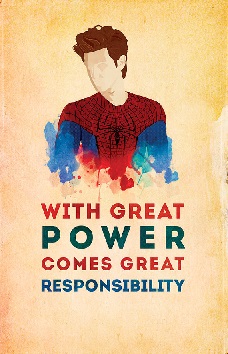
Hey, you! Out there! My conservative friends – can we talk for a moment?
You lefties go save a whale or something for a minute, will you? No one can speak openly when you’re around, waiting to be offended by something, and I need to cover a few things with the grown-ups. Don’t you have some drugs to legalize or Christians to mock?
Are they gone?
OK, good.
 Look, you and I both know things have gotten ridiculous lately. The inmates are running the asylum, and we can’t even say anything about it because the only protected speech these days is nutty liberal speech – am I right?
Look, you and I both know things have gotten ridiculous lately. The inmates are running the asylum, and we can’t even say anything about it because the only protected speech these days is nutty liberal speech – am I right?
“Oh poor little Enrique, don’t give him any zeroes! He’s missing an eardrum and has to sell matchsticks to feed his family!” Like hell he does – his smartphone is nicer than mine and he every bit of American History he knows is from Assassin’s Creed III.
“You need to understand their learning styles! We need an anti-bullying assembly! Don’t count anyone late or expect them to wear their ID’s because what if their lives aren’t perfect? You might hurt their feelings!”
I know. I get it. It’s maddening. We pander to every little touchy-feely trend that sweeps through, then wring our hands and wonder why our kids don’t have ‘grit’.
We already have to accommodate an unprecedented number of newly discovered “learning disabilities,” and NOW we’re supposed to start validating their weird emotional issues as well.
 OK, so everyone’s gay now. Fine – live it up. We’ve got girls who are pregnant, boys who think they’re “really” girls, and a few wrecking ball personalities who insist they’re trans-bi-something or other.
OK, so everyone’s gay now. Fine – live it up. We’ve got girls who are pregnant, boys who think they’re “really” girls, and a few wrecking ball personalities who insist they’re trans-bi-something or other.
And you’re doing your best to pretend this is all beautiful and normal, but you don’t get it – and you’re damn sure not going to learn new pronouns for them!
Most of the time we roll with it, but one more demand for a special locker room, and… WTF?
Please know that I hear you. I understand this feeling, this… sense of insanity at the way these ‘laws’ and ‘parents’ and ‘advocates’ join forces for the sole purpose of BLAMING YOU AND ME – the only two ‘normal’ people in the equation! We’re the ones with jobs and matching socks and everything – and somehow WE’RE the problem?!
But I’d like for you to set that aside for a moment, if you can. Please – just for a few minutes. I’m not negating it, but it’s in the way of something.
Forget whatever moral or emotional issues we have with the outliers or the system that seems to encourage them. Ignore the various weirdos who’ve made things so unpleasant as they fling their issues at you and no one will rein them in because OMG lawsuit.
 Silence for just a bit your inherent skepticism about just how innate or genetic or legitimate any variety of lifestyles, identities, or issues might be. In fact, feel free to assume that they’re all poor choices and family dysfunction – every last one – from dyslexia to pony play, it’s all just f****** up and unnatural.
Silence for just a bit your inherent skepticism about just how innate or genetic or legitimate any variety of lifestyles, identities, or issues might be. In fact, feel free to assume that they’re all poor choices and family dysfunction – every last one – from dyslexia to pony play, it’s all just f****** up and unnatural.
But listen to me.
They’re your kids.
They’re your students.
They are trusted to your care to educate and inspire as you are able.
Yeah, I know – but they are.
Even those not in your class fall under your extended ‘teacher-as-candle-lighter’ job description – including the ones who give you those looks, and who you don’t think much of in return.
The broken ones. The slutty ones. The stupid ones. The annoying ones.
 They’re our kids.
They’re our kids.
They’re supposed to be clueless, you know – that’s why we make them come to school. If they had their act together they could stay home and do this online.
Some of them are hurting so badly they can’t function – not because their lives are any harder than yours or anyone else’s (although some of them are), but because they’re a mess.
Some of them actually have those horror stories we always endure at the faculty meetings to make us feel bad about ever expecting anyone to do anything. Some of them don’t, but they don’t know that they don’t – they feel like they do.
Some of them have it more together than you do. Seriously – it’s weird.
You’re old – you’ve probably survived your share of actual stress, actual challenges, actual hurts. You know the difference between crippling reality and justkindadontwannathinkaboutit. They often don’t.
 To them, it’s all the same – delusional though it sounds, many of them believe and feel deeply that they’re overwhelmed, underloved, misunderstood or maligned, abused or marginalized. That kind of stuff is all SO relative that it’s usually impossible to know when you’re looking at a survivor some black hole of personal trauma or the teenage equivalent of a two-year old who doesn’t get a cookie and thinks their world is over.
To them, it’s all the same – delusional though it sounds, many of them believe and feel deeply that they’re overwhelmed, underloved, misunderstood or maligned, abused or marginalized. That kind of stuff is all SO relative that it’s usually impossible to know when you’re looking at a survivor some black hole of personal trauma or the teenage equivalent of a two-year old who doesn’t get a cookie and thinks their world is over.
But that’s a distinction without a difference for them experientially, emotionally.
Teenagers are weird, and vulnerable, and subject to change. Add in a little misfittage due to sexuality, race, personal quirks, size, or whatever, and you have quite the fragile critter in your hands.
 Some of them you couldn’t impact if you used a sledgehammer, I get that – but you impact more of them more strongly than you probably signed up for. Sorry. With power comes culpability and all that. James 3, baby.
Some of them you couldn’t impact if you used a sledgehammer, I get that – but you impact more of them more strongly than you probably signed up for. Sorry. With power comes culpability and all that. James 3, baby.
I’m not asking you to put up with bad behavior – sometimes a little structure and tough love is the best thing for them (not always, but sometimes). I’m not asking you to excuse poor work or lower your classroom expectations against your better judgment.
I’m suggesting we keep in mind that we’re the adults, and the teachers. We are sometimes – at the risk of being melodramatic – the last, best hope for a little acceptance, stability, or kindness in their lives.
 Yeah, they have a circle of friends – but you really think anyone sharing their Island of Misfit Toys is a good replacement for a relatively stable adult willing to accept and push them a bit? Besides, you have a professional and moral obligation not to be part of the problem, however subtle you think your looks and tone might be.
Yeah, they have a circle of friends – but you really think anyone sharing their Island of Misfit Toys is a good replacement for a relatively stable adult willing to accept and push them a bit? Besides, you have a professional and moral obligation not to be part of the problem, however subtle you think your looks and tone might be.
They’re not, I assure you.
Considering how little responsibility some of them seem to show, you’d be horrified by how many things they strongly feel are their fault – stuff they couldn’t fix, couldn’t stop, couldn’t explain. It’s crippling.
You have no idea how important your acceptance might be to them. It doesn’t automatically validate everything about them you don’t like. ‘Loved without justification’ – this sounds familiar in your paradigm, yes?
You don’t have to use trendy phrases or special handshakes. You probably don’t need to sample their awful musical tastes or pry into their personal cacophony. But don’t be the one who tries to smile but sighs inside and kinda wishes they’d go away.
They’re not stupid.
 Consider being a reasonable, normal, loving person in whatever style you are for the other kids – the ones you ‘get’. You won’t go to hell for it, I promise.
Consider being a reasonable, normal, loving person in whatever style you are for the other kids – the ones you ‘get’. You won’t go to hell for it, I promise.
The ‘normal’ kids need some better examples of how to deal with those unlike them, and the weirdos could use a teacher – a symbol, however maligned, of the ‘system’ and the ‘norm’ – who insists not that they be someone else, but that they be the best ‘them’ they can be, whatever they decide that is.
You lefties can come back in, now. What? Oh, nothing – just, um… blaming Obama for stuff. Nothing you’d want to hear.
Coffee?

RELATED POST: What Misfits Wish Their Teachers Knew (Guest Blogger – Courtney’s Voice)


 Strange, though, in a system overrun with white educators, that we don’t see more from a demographic otherwise quite active on social media. There are retweets, and comments, and a few blog posts, but nowhere near what the raw numbers would suggest.
Strange, though, in a system overrun with white educators, that we don’t see more from a demographic otherwise quite active on social media. There are retweets, and comments, and a few blog posts, but nowhere near what the raw numbers would suggest. 2) Reasonably educated white people – teachers – are terrified of saying something wrong. Not merely incorrect, you understand, although that’s problematic as well, but something inappropriate, or taken badly, or, the worst of all evils… racist.
2) Reasonably educated white people – teachers – are terrified of saying something wrong. Not merely incorrect, you understand, although that’s problematic as well, but something inappropriate, or taken badly, or, the worst of all evils… racist. You know that reaction you get when someone who’s never been in combat tries to talk about war? When people without kids try to lecture on parenting? That sensation you get as a teacher reading “expert” advice from people who’ve never run YOUR classroom? Yeah, that’s who white people don’t want to become when trying to speak about anything even remotely related to race.
You know that reaction you get when someone who’s never been in combat tries to talk about war? When people without kids try to lecture on parenting? That sensation you get as a teacher reading “expert” advice from people who’ve never run YOUR classroom? Yeah, that’s who white people don’t want to become when trying to speak about anything even remotely related to race. Their daily experience tells them there are patterns of behavior among certain groups, and that stuff that drives them crazy tends to come from the same demographics. BUT, they don’t feel like they’re allowed to state the obvious – and that makes it worse. It build resentment because it must remain unspoken – the Voldemort of public education.
Their daily experience tells them there are patterns of behavior among certain groups, and that stuff that drives them crazy tends to come from the same demographics. BUT, they don’t feel like they’re allowed to state the obvious – and that makes it worse. It build resentment because it must remain unspoken – the Voldemort of public education. You have no idea how deflating it was to discover that Bill Cosby – a guy we were SURE was legitimately BLACK, but who wanted people to speak properly, pull up their pants, and take a little personal responsibility – is some kinda serial rapist. Dammit! How SELFISH of him to do this to us – er… I mean, to those women!
You have no idea how deflating it was to discover that Bill Cosby – a guy we were SURE was legitimately BLACK, but who wanted people to speak properly, pull up their pants, and take a little personal responsibility – is some kinda serial rapist. Dammit! How SELFISH of him to do this to us – er… I mean, to those women! The challenge of incorporating technology in the classroom has always been finding ways to utilize it effectively. It’s tempting to begin planning around what the technology can DO, building the lesson from that rather than the reverse.
The challenge of incorporating technology in the classroom has always been finding ways to utilize it effectively. It’s tempting to begin planning around what the technology can DO, building the lesson from that rather than the reverse.  980: Hey kids! It used to be Jeopardy w/ pockets of index cards – but now it’s on the Overhead Projector!
980: Hey kids! It used to be Jeopardy w/ pockets of index cards – but now it’s on the Overhead Projector! Hide your kids, hide your wife, they’re mimeographin’ everybody up in here.
Hide your kids, hide your wife, they’re mimeographin’ everybody up in here. Facing such venom, the façade of technological revolution has had to settle for second place – runner-up status in the ranking of all things shameful.
Facing such venom, the façade of technological revolution has had to settle for second place – runner-up status in the ranking of all things shameful. “Virtual Learning” is a flashy new euphemism for “book work and worksheets,” but online.
“Virtual Learning” is a flashy new euphemism for “book work and worksheets,” but online. It’s everything teachers have been badgered and mocked for, in pop culture and required PD, minus the human interaction. While teachers are gathered in one part of the building being told for the hundredth time that “students don’t care how much you know until they know how much you care” and that any lesson built around teacher-selected content or students working individually is outdated, ineffective, and grounds for dismissal, students are gathered in another part of the building (or on laptops at home in their sweats with Teen Mom blaring three feet away) working individually on teacher-selected content without a clue what their teacher even looks like, let alone “how much they care.”
It’s everything teachers have been badgered and mocked for, in pop culture and required PD, minus the human interaction. While teachers are gathered in one part of the building being told for the hundredth time that “students don’t care how much you know until they know how much you care” and that any lesson built around teacher-selected content or students working individually is outdated, ineffective, and grounds for dismissal, students are gathered in another part of the building (or on laptops at home in their sweats with Teen Mom blaring three feet away) working individually on teacher-selected content without a clue what their teacher even looks like, let alone “how much they care.” (In other news, irony is dead.)
(In other news, irony is dead.) While we’re at it, maybe we could ease up a bit on the teachers doing similar things in class, just trying to get their kids through. Yes, they’ve photocopied a crossword puzzle for review. No, they won’t be winning any awards for creativity. But instead of condemning them, maybe we could notice the way they’re impacting their kids in other ways – taking those random one-on-one opportunities or dragging the whole group kicking and screaming into the light of basic knowledge.
While we’re at it, maybe we could ease up a bit on the teachers doing similar things in class, just trying to get their kids through. Yes, they’ve photocopied a crossword puzzle for review. No, they won’t be winning any awards for creativity. But instead of condemning them, maybe we could notice the way they’re impacting their kids in other ways – taking those random one-on-one opportunities or dragging the whole group kicking and screaming into the light of basic knowledge. It’s been a rocky school year. I’ve been doing this for fifteen years now, and thought I had a pretty good handle on how to teach freshmen. But they’re not getting it. It’s not that they can’t – it seems they’re going out of their way to NOT.
It’s been a rocky school year. I’ve been doing this for fifteen years now, and thought I had a pretty good handle on how to teach freshmen. But they’re not getting it. It’s not that they can’t – it seems they’re going out of their way to NOT. Maybe it’s this focus on skills. I used to just teach some history, but no – we’re supposed to make them think and analyze and all that. From po’ baby to independent learner in less than a year? When everything else in their world is designed to coddle and entertain them? Impossible! I like this solution better, but… I kinda value the skills thing. And it’s not an entirely new thing, so it can’t completely explain the problem this year.
Maybe it’s this focus on skills. I used to just teach some history, but no – we’re supposed to make them think and analyze and all that. From po’ baby to independent learner in less than a year? When everything else in their world is designed to coddle and entertain them? Impossible! I like this solution better, but… I kinda value the skills thing. And it’s not an entirely new thing, so it can’t completely explain the problem this year. Once I’ve unconsciously chosen a path towards resolution (of my cognitive dissonance), I find a trove of evidence supporting my solution. These freshmen really are clueless sometimes. That’s always been true, but that doesn’t matter – it’s true right now and feeds my narrative. There are always a few who go out of their way to be irritating. Again, always – but for now, proof.
Once I’ve unconsciously chosen a path towards resolution (of my cognitive dissonance), I find a trove of evidence supporting my solution. These freshmen really are clueless sometimes. That’s always been true, but that doesn’t matter – it’s true right now and feeds my narrative. There are always a few who go out of their way to be irritating. Again, always – but for now, proof.
 A
A  Comrades of a police officer, soldier, teacher, doctor, or clergyman who takes a questionable turn have a natural sympathy for the position in which that individual finds themselves. They understand better than most how things can be, could have gone, or should be different. They feel the feels, face the challenges, and share the convictions which led them to the profession to begin with.
Comrades of a police officer, soldier, teacher, doctor, or clergyman who takes a questionable turn have a natural sympathy for the position in which that individual finds themselves. They understand better than most how things can be, could have gone, or should be different. They feel the feels, face the challenges, and share the convictions which led them to the profession to begin with.
 But let’s not fool ourselves regarding our passions. We value conviction and consistency more than we do content. We prize clarity over breadth of vision. It’s how we’re built, so presumably there are uses and advantages to such inner workings.
But let’s not fool ourselves regarding our passions. We value conviction and consistency more than we do content. We prize clarity over breadth of vision. It’s how we’re built, so presumably there are uses and advantages to such inner workings. I should start with a warning that I’m probably going to say the wrong thing. I know this because I often say the wrong thing – not just with you, or with other students of color, but in general. Saying the wrong thing is something of a specialty of mine.
I should start with a warning that I’m probably going to say the wrong thing. I know this because I often say the wrong thing – not just with you, or with other students of color, but in general. Saying the wrong thing is something of a specialty of mine.